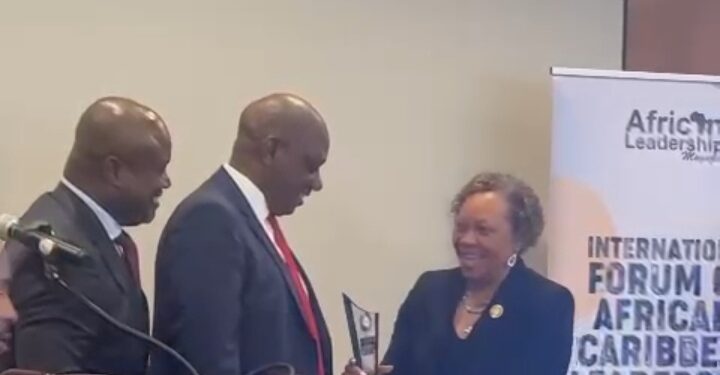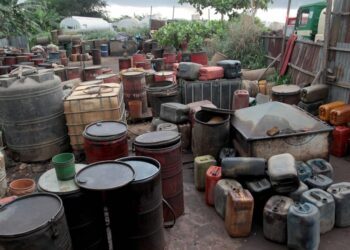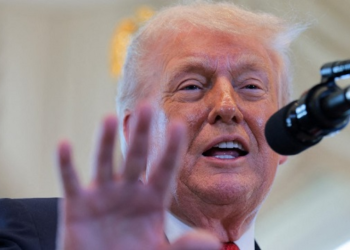The Senator representing Kaduna South at the Nigeria’s National Assembly, Sen Sunday Marshall Katung has said that the future of Africans and Caribbeans is intertwined with the planet’s fate, calling for concerted efforts to address climate change challenges.
Katung stated this during a speech at the International Forum of African-Caribbean Leadership (IFACL), which is part of activities at the ongoing UN General Assembly (UNGA 79) in New York.
Katung, who was also honoured with the African Leadership Legislative Excellence Awards 2024, said Africa and the Caribbean must face the common challenges such as climate change, poverty, inequality, and social injustice.
“These necessitate a collective call to action beyond the rhetoric of oratory. Many African and Caribbean countries are currently at risk of not meeting the SDGs by 2030 thus the imperative and urgency to rally around Goal 17: Partnership for the Goals.
“To effectively tackle multidimensional poverty, environmental degradation, sustainable development as well as resilient societies, we must adopt a multi-stakeholder approach that engages all sectors of society,” Katung said while calling for a paradigm shift with the parliament effectively playing its legislative functions, from traditional representative democracy to a more inclusive, participatory, accountable and responsive democracy.
“The current system has fallen short and it is imperative that we acknowledge this reality,” Katung said, adding that the demand for participatory democracy is growing and that African and Caribbean countries will eventually need to embrace the shift to build resilient societies that truly represent the voices and needs of their citizens.
“In this regard the role of the parliament cannot be overemphasized. Parliament has the mandate to enact laws that support multi-stakeholder partnerships, provide through appropriation resources and funding for partnership initiatives and hold the executive accountable for their commitments and actions towards such partnerships.
“Thankfully, despite threats of rising authoritarianism and closing civic spaces globally, many countries have embraced the Open Government Partnership (OGP).
“This is a global reform initiative that is being co-created and championed by reformers in governments and civil society to foster a culture of public transparency, accountability and responsiveness and is key to galvanizing multi-stakeholder partnerships that can help accelerate the move from transactional changes to achieve transformational progress.
“Indeed, IFACL has established a vital platform for leaders to convene, share experiences, exchange ideas and co-create solutions that foster multi-stakeholder partnerships and advance our collective purpose.
“The importance of supporting regional integration and cooperation in Africa and the Caribbean cannot be overstated. Leaders, including parliamentarians, must acknowledge that resilient societies are built through collaborative efforts across all sectors, driving economic growth, social progress, environmental protection and inclusive development,” Katung said while calling for a culture of collaboration, innovation, and inclusivity and to creating actionable roadmaps that will help achieve the Sustainable Development Goals.











